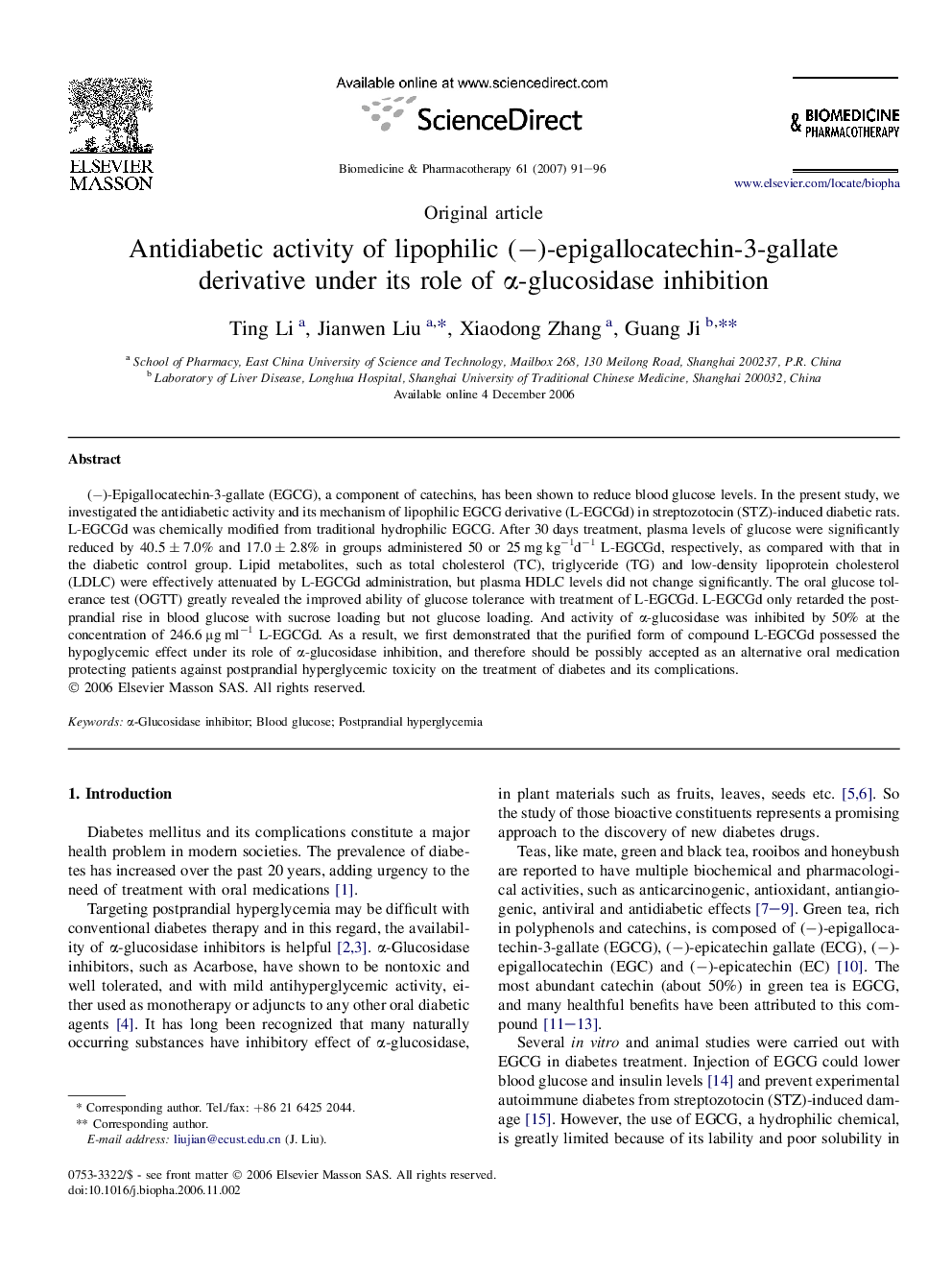| کد مقاله | کد نشریه | سال انتشار | مقاله انگلیسی | نسخه تمام متن |
|---|---|---|---|---|
| 2525931 | 1119653 | 2007 | 6 صفحه PDF | دانلود رایگان |

(−)-Epigallocatechin-3-gallate (EGCG), a component of catechins, has been shown to reduce blood glucose levels. In the present study, we investigated the antidiabetic activity and its mechanism of lipophilic EGCG derivative (L-EGCGd) in streptozotocin (STZ)-induced diabetic rats. L-EGCGd was chemically modified from traditional hydrophilic EGCG. After 30 days treatment, plasma levels of glucose were significantly reduced by 40.5 ± 7.0% and 17.0 ± 2.8% in groups administered 50 or 25 mg kg−1d−1 L-EGCGd, respectively, as compared with that in the diabetic control group. Lipid metabolites, such as total cholesterol (TC), triglyceride (TG) and low-density lipoprotein cholesterol (LDLC) were effectively attenuated by L-EGCGd administration, but plasma HDLC levels did not change significantly. The oral glucose tolerance test (OGTT) greatly revealed the improved ability of glucose tolerance with treatment of L-EGCGd. L-EGCGd only retarded the postprandial rise in blood glucose with sucrose loading but not glucose loading. And activity of α-glucosidase was inhibited by 50% at the concentration of 246.6 μg ml−1 L-EGCGd. As a result, we first demonstrated that the purified form of compound L-EGCGd possessed the hypoglycemic effect under its role of α-glucosidase inhibition, and therefore should be possibly accepted as an alternative oral medication protecting patients against postprandial hyperglycemic toxicity on the treatment of diabetes and its complications.
Journal: Biomedicine & Pharmacotherapy - Volume 61, Issue 1, January 2007, Pages 91–96